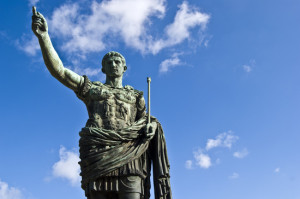
One of the amazing aspects of the Easter story is the sudden and violent turn of the people of Jerusalem on Jesus. This man they had known as an admired teacher, worker of wonders, and miraculous healer was suddenly rejected. Those who had placed palm branches on the ground a week earlier were suddenly screaming out “Crucify him!”
Pilate, the governor of Judea offered the people a choice. He hoped in so doing that he could free Jesus (after all Jesus had committed no crime, and Pilate knew it was the jealously of the religious leaders that provoked his trial). He thought the people would certainly choose to free the kind and benevolent (if also controversial) Rabbi if their only other choose was to free Barabbas.
Barabbas was a prisoner held by the Romans for the crime of murder and insurrection (ugly crimes in any day). His crimes genuinely merited death. The people certainly wouldn’t want to turn a murderer loose on their own city, would they? The name Barabbas means “son of the father” (In Aramaic Bar=Son, and Abba=Father). Astonishingly the crowds demanded that this guilty villain, this false “son of the father,” be released. And what of Jesus (the holy and righteous man and true Son of the Father)? “Crucify him!”
The guilty man went free and the innocent one suffered and died on the cross. Why did the crowds turn on Jesus so suddenly? The answer is complex and difficult to understand. But let us be thankful that they did – it is the reason that he came. The innocent Son of the Father died in the place of the guilty. The just died for the unjust, the righteous for the unrighteous. Like Barabbas we who are guilty go free and by being identified with Jesus we become sons and daughters of the father. “Yet to all who received him, to those who believed in his name, he gave the right to become children of God” (John 1:12).